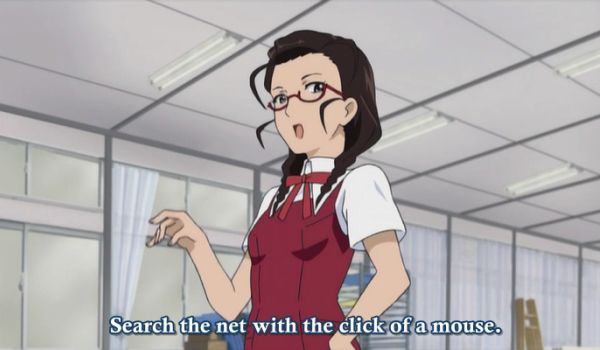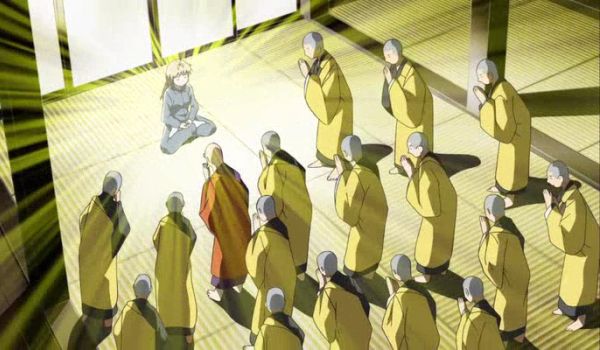Parental explosions is just one of the things most humans have to contend with. Parents should be filled with inexhaustible love and wisdom, but sometimes the difference between father and toddler is mainly one of physical strength. People are stupid and crazy.
Today I want to write calmly and objectively about the fact that most people are stupid and crazy.
In the past, we were in contact with only a few people. In the village, the same people were our neighbors, friends (or enemies) and more or less distant relatives. Today, I hear from people living in different towns or cities and even different countries. And yet many of them have the same experience: They are surrounded by idiots. Neighbors, customers, coworkers, fellow travelers, even relatives. Usually stupid, sometimes crazy, or both.
The reaction varies, depending on temperament and the actions to which they are exposed: From amusement to disdain to anger. But there is another emotion underlying these, and that is what I want to confront: Surprise. Somehow there is the expectation that ordinary people should not be stupid or crazy, that this should be reserved for a special few. And with that comes the logical question of why these few have decided to cluster around me. Why me? Why must I, of all people, be surrounded by idiots?
The truth is that almost all people are surrounded by idiots, because almost all people are idiots. This is not new. Throughout recorded history, there has never been a time when most people were smart and sane. Historians have simply decided to ignore this for the most part, mercifully. Actually, I believe things were worse in the past. Much worse.
I present to you the fact that around the year 1900, when my maternal grandfather was already born, it was considered perfectly reasonable for men of good breed and classical education to duel to the death over the heart of a lady. The survivor, if any, would then presumably take ownership of the Cattle With Breasts, who generally had no reservations or at least no ability to enforce them. Today, in the upper layers of society, I dare say that people would simply ask her to choose instead. But people were dumber then, impossible as this may seem at times.
Seriously, throughout most of history, most people were illiterate, uneducated, malnourished and forced to work hard from early childhood. Being stupid and crazy came with the territory. The few glaring exceptions are the ones who are remembered today, for the simple reason that they created today’s culture. We are their cultural heirs. Without the exceptions we would not been here.
So what is your neighbor’s excuse today? We are no longer illiterate, malnourished and forced into child labor. Why don’t we all grow up to paragons of wisdom and sanity?
Well, one thing is the purely biological mental capacity. In an age where it was normal to be stupid and crazy, there was no strong selection pressure to weed out the stupid and crazy. Quite possibly the opposite, at times. As long as you could till the soil, milk the cows, and not try to reform religion, you were good to go. You stood an excellent chance to survive long enough to reproduce, especially since you probably started early. Of course, many of your children would die, but being smart or sane would not have changed that, since there was no option to have your children vaccinated or even to learn that drinking uncooked water might kill them.
Then there is the matter of family tradition. If your great-grandparents were stupid and crazy, how do you think they raised your grandparents? And how did your grandparents raise your parents? Somewhere along the road you and I lucked out. Someone intervened, quite likely a teacher, breaking the chain of insanity and tempting someone into thinking more clearly, or more at all. Perhaps someone even just stumbled across a book, and having learned to read in school, found within the book the seeds of sanity. It was no sure thing. I can bring witnesses that not all teachers even today make a big difference in favor of wisdom.
In the last instance, there is also the personal responsibility. Even if you have the opportunity to become a bright light, you may decide not to, or simply not decide at all. Many promising young people decide that there is more fun to be had by taking various drugs or simply getting dangerously drunk repeatedly, even if it impacts their future brain function. Or they just have other hobbies than thinking. The day only has so many hours, after all.
So when we meet a stranger, we should not do so with the expectation that they will be just like us. The very fact that you have been able to wade through this vast text (with long words here and there) is proof that you are not an average person. I am not recommending paranoia, of course. Most people are not actually malicious, just stupid and to some extent mentally unhinged. They don’t particularly want to hurt you. In fact, you are probably not quite real to them, as most people have plenty enough with thinking of themselves and, in the happier cases, their closest family. You are just a bystander that may provide them with money, sex or someone to yell at when angry.
You may think me a misanthrope at this point. And it is true that I have studied misanthropology for a long time, but I have done so largely in my own life. I have studied why I, of all people, fail to live up to my expectations. And so I have concluded that being human is not all that easy, even with a good starting point, which most people don’t have.
We should love and help people, because they need it, and because it is the right thing to do. If the reasonably smart, reasonably sane people don’t try to help keep the wagon on the road, who will? The blind, leading the blind?
To borrow an allegory from Ryuho Okawa’s latest book (Change Your Life, Change the World), a loveless society is like a hospital filled with patients screaming and moaning in pain. If there are no healers of the soul, how will they get better? Should we just quietly hope that they will die so the screaming stops? It is not likely, there will be new patients replacing the old.
Now, I am not well suited to go out among people and spread love and joy. After all, I am a weirdo. But someone who has an established family life, non-ugly looks or an admirable economy may be in a position to impress those around them with the benefits of sanity. Please, consider it, or at least don’t go around with a shaker of salt for their wounds…










